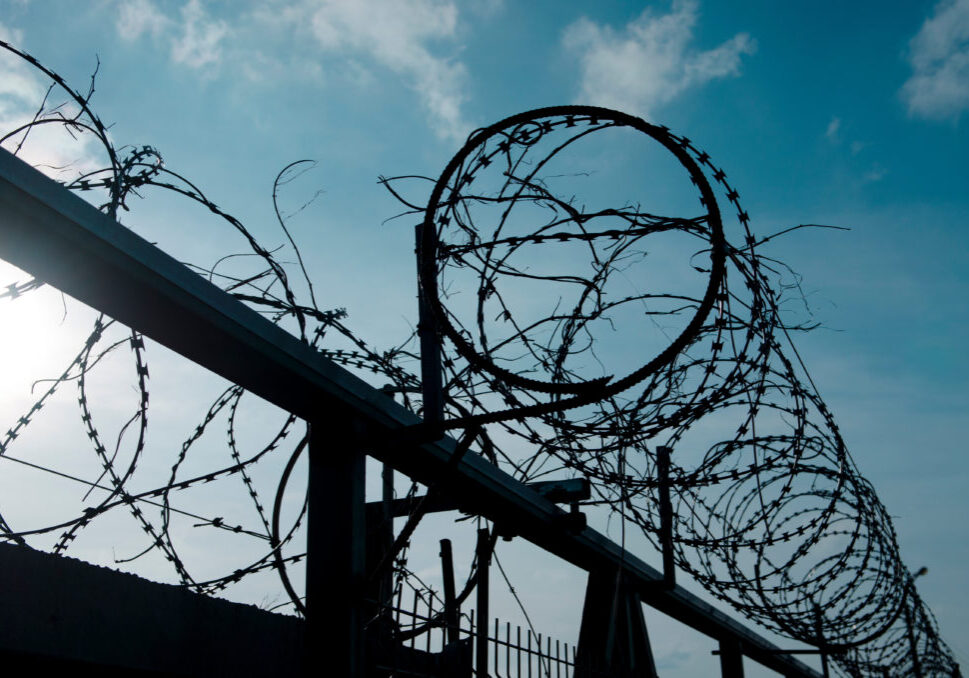Talks are underway between Louisiana officials and the Trump administration to hold immigrant detainees at the state’s maximum security prison in Angola. The Times-Picayune | Baton Rouge Advocate’s James Finn explains how immigrants could be held in a controversial wing of the prison that was closed in 2018:
The state shuttered Camp J in 2018 in a move hailed by criminal justice advocates as a much-needed end to harsh conditions at the site. Camp J “just doesn’t seem to be an environment that’s suitable for a human being to be in,” said David Cloud, a former staffer for the criminal justice advocacy group Vera, who led a team in 2016 that partnered with the state to find ways to reduce solitary confinement. “Putting ICE detainees there would just be another, you know, stain in history.”
The New York Times provides in-depth reporting on how the city of Alexandria and state of Louisiana have become the nation’s deportation capital:
More deportation flights have taken off from there than from any other place in the United States, and more domestic ICE flights have passed through there than anywhere else, according to a widely cited database of ICE flights. … With tens of billions of dollars in additional funding now directed toward ICE, Louisiana is at the leading edge of an expansive and aggressive nationwide effort to expel immigrants, far beyond the actions taken during the first Trump administration.
Legislative redistricting hearing postponed
A federal judge has paused the effort to redraw Louisiana’s legislative maps while the U.S. Supreme Court decides if the intentional creation of majority-minority districts is constitutional. In February 2024, U.S. District Chief Judge Shelly Dick ruled the Legislature’s current political boundaries violate the Voting Rights Act and must be redrawn. Louisiana officials appealed that decision. Dick cited a case involving the state’s congressional map, which has huge implications for the future of the Voting Rights Act, as the justification for the postponement. The Times-Picayune | Baton Rouge Advocate’s Matt Bruce reports:
The judge determined the case involving the House and Senate voting maps is too closely intertwined with other Louisiana redistricting cases to proceed with the evidentiary hearing this month. She agreed with the state’s assessment that there is a “substantial likelihood that there’s going to be a change in the game” after the SCOTUS delivers its opinion. “It could not be more clear that the United States Supreme Court intends to address the interplay between Section 2 of the Voting Rights Act and the 14th Amendment,” Dick said.
Lower prison call rates postponed
The Federal Communications Commission is postponing a ruling that capped the high costs of phone and video calls from jails and prisons. The ruling, which the FCC issued last year, was challenged by Louisiana officials in February. The Times-Picayune | Baton Rouge Advocate’s Meghan Friedmann reports:
(T)he decision to halt the lower rates upset some members of the Louisiana Public Service Commission, who believed the current rates are extortionate. And criminal justice advocates have argued phone calls are key to rehabilitation, as they allow inmates to stay in touch with their communities and loved ones. The rule, which is now being reconsidered and won’t take effect until 2027, would have set a maximum rate of 6 cents per minute. That would have more than halved the rate at Louisiana state prisons, which as of February charged 14 cents a minute.
Friday, August 8 is Global Incarcerated Loved Ones Day.
Federal cuts put state public health departments on edge
President Donald Trump’s budget proposal aims to cut funding for the federal Centers for Disease Control and Prevention in half. Stateline’s Shalina Chatlani explains how this move is creating anxiety for state and county public health departments.
States contribute to their own health departments, but a lot of them rely heavily on federal funding. And around half of local public health department funding comes from federal sources, primarily the CDC, as noted in a 2022 report from the National Association of County & City Health Officials. “The federal government provides a lot of funding, but the actual implementation of public health programs happens at the state and local level,” said Josh Michaud, associate director of global health policy at KFF, a health policy research group.
Number of the Day
$4,200 – Average amount that U.S. families spend annually per incarcerated relative. (Source: FWD.us)
